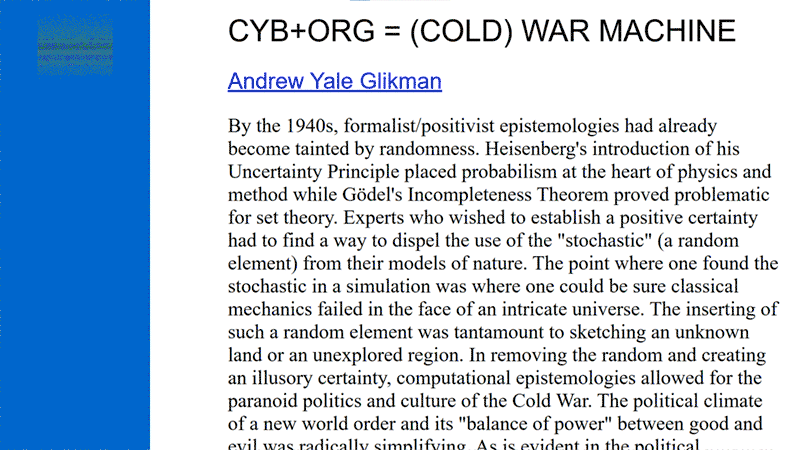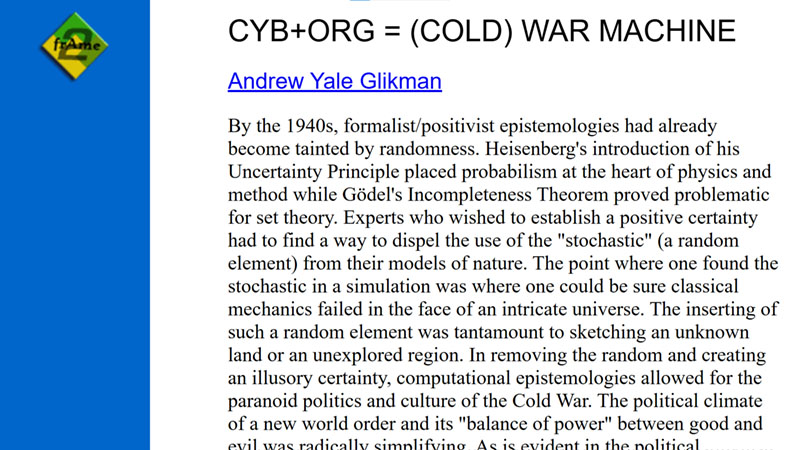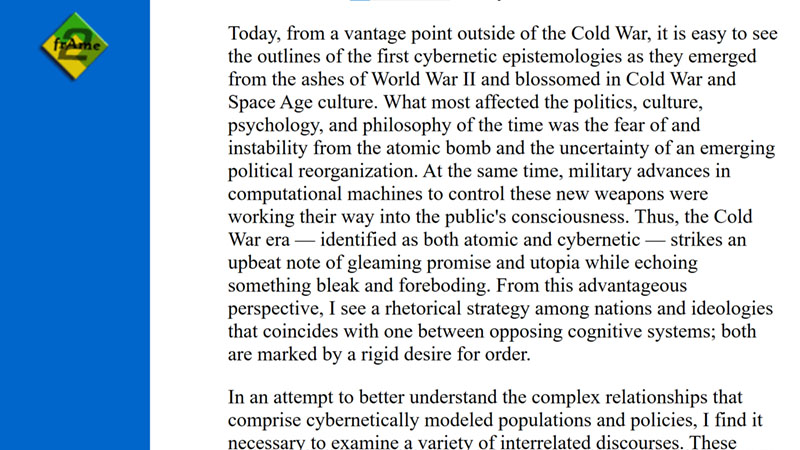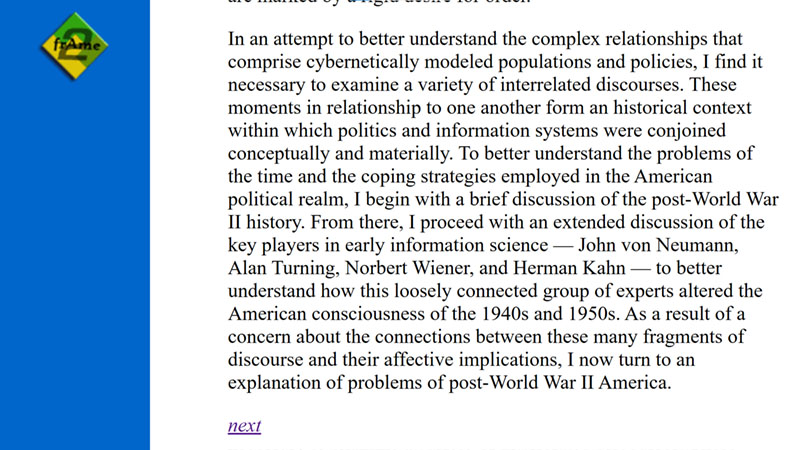"This essay is a revised version of a paper presented to the American Association for Rhetoric of Science and Technology at the 1998 convention of the National Communication Association." -- from frAme, Issue 2, 1999
"Today, from a vantage point outside of the Cold War, it is easy to see the outlines of the first cybernetic epistemologies as they emerged from the ashes of World War II and blossomed in Cold War and Space Age culture. What most affected the politics, culture, psychology, and philosophy of the time was the fear of and instability from the atomic bomb and the uncertainty of an emerging political reorganization. At the same time, military advances in computational machines to control these new weapons were working their way into the public's consciousness. Thus, the Cold War era — identified as both atomic and cybernetic — strikes an upbeat note of gleaming promise and utopia while echoing something bleak and foreboding. From this advantageous perspective, I see a rhetorical strategy among nations and ideologies that coincides with one between opposing cognitive systems; both are marked by a rigid desire for order.
In an attempt to better understand the complex relationships that comprise cybernetically modeled populations and policies, I find it necessary to examine a variety of interrelated discourses. These moments in relationship to one another form an historical context within which politics and information systems were conjoined conceptually and materially. To better understand the problems of the time and the coping strategies employed in the American political realm, I begin with a brief discussion of the post-World War II history. From there, I proceed with an extended discussion of the key players in early information science — John von Neumann, Alan Turning, Norbert Wiener, and Herman Kahn — to better understand how this loosely connected group of experts altered the American consciousness of the 1940s and 1950s. As a result of a concern about the connections between these many fragments of discourse and their affective implications, I now turn to an explanation of problems of post-World War II America." -- from CYB+ORG = (COLD) WAR MACHINE, Andrew Glikman
"Andrew Glikman, M.A. is currently a Ph.D. student at the University of Texas at Austin. He is studying the rhetoric of science and technology and investigating the rhetorical dimensions of hypertext, cyborgs, virtual environments, and human/machine interface. He is affiliated with the Advanced Communication Technologies Laboratory (ACT Lab), a research facility supporting radical work at the borders of technology, art, and culture."-- from frAme, Issue 2, 1999
1 COPY IN THE NEXT
Published in 1999 by frAme in Issue 2.
Nottingham Trent University, with the permission of Sue Thomas, gave this copy of the work to the Electronic Literature Lab in Spring 2016.
PUBLICATION TYPE
Online Journal
COPY MEDIA FORMAT
Web



